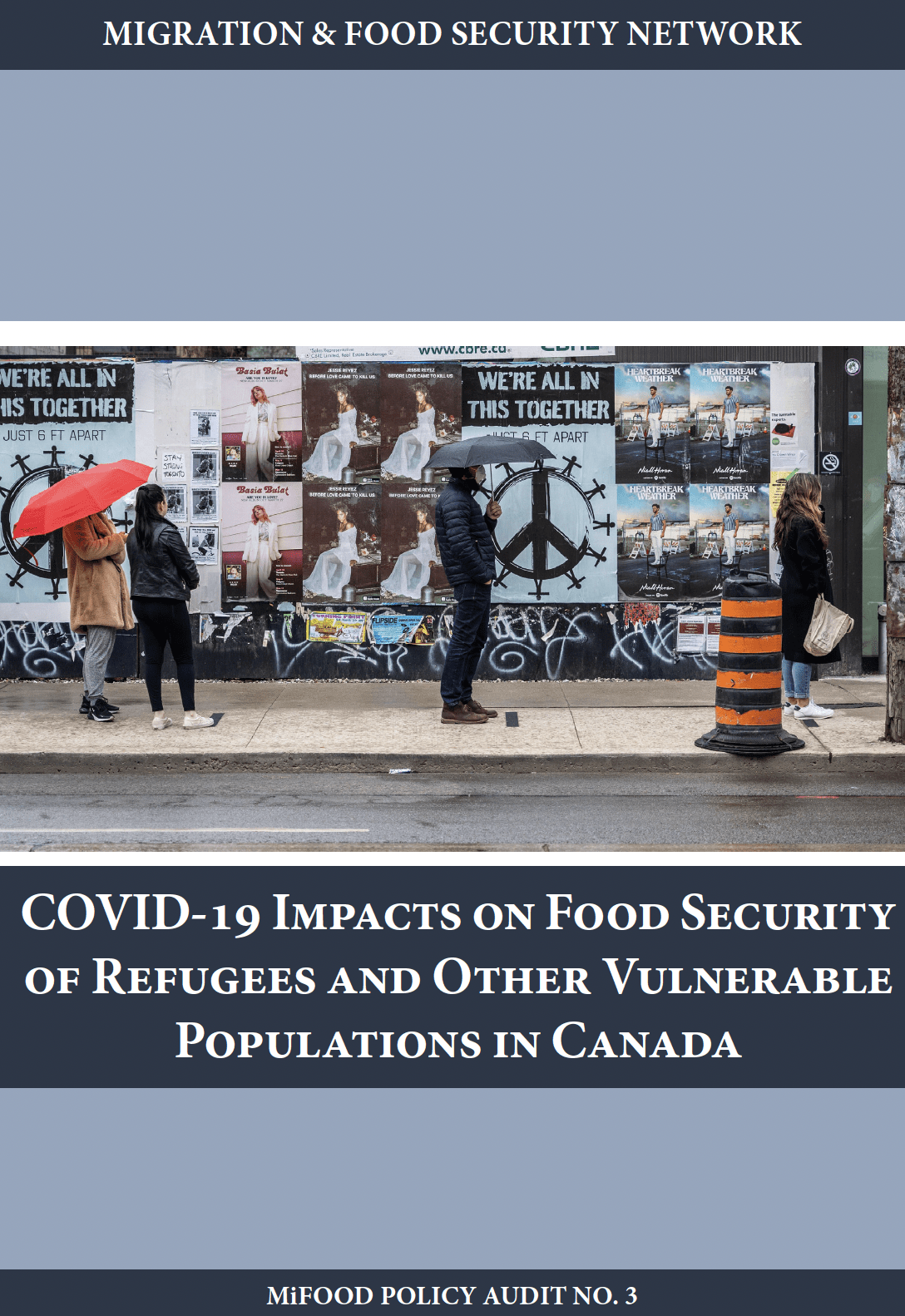This policy audit explores the impacts of the COVID-19 pandemic on food security in Canada, with a focus on immigrants, refugees, and other marginalized communities, particularly in Ontario and the Waterloo Region. COVID-19 significantly exacerbated food insecurity in the country, adding to existing vulnerabilities especially in historically disadvantaged communities, who already faced barriers such as low-income employment, poor housing, and limited healthcare access. COVID-19 responses, including lockdowns and travel restrictions, disrupted food production, processing, and retail services. The supply chain disruptions, along with inflation, drove food prices to their highest levels in decades. Economic access to food became a pressing concern for low-income households, including those of migrants and refugees. Federal and provincial measures to mitigate the effects of the pandemic provided financial relief, increased food bank support, and targeted assistance to vulnerable populations. Yet, temporary support measures could not fully address structural food security challenges. The pandemic brought food insecurity to the forefront of public health concerns in Canada. Its long-term effects on food security remain significant, requiring ongoing monitoring and targeted policy interventions.

